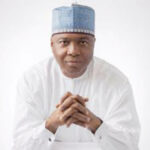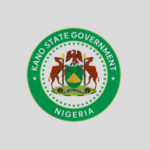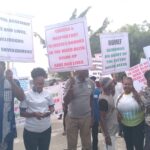Having concluded the series on Cooperative business, in which I treated what it is, what benefits it makes available to owners and what opportunities it provides, among others, I have decided to look at the wealthcreation opportunities in our communities by identifying the various resources that can be converted to cash by Nigerians. For me, so much gold exists in the various communities we have in Nigeria even though we are only made to see the grim picture of grinding poverty and deprivation. This halftruth is what has sustained the current rural-urban drift and has forced many young Nigerians to seek opportunities to travel abroad as an escape hatch from the "misery" of living and working in the country. Many young people who are sold the idea of a greener pasture out there, in other countries, do not understand that for someone not prepared, travelling abroad may not translate to better opportunities for them. It could ensnare them or expose them to a hostile environment where they may never be accepted and may have to battle with many artificially created ceilings. The recent xenophobic attacks in South Africa and the entrenched racial discrimination in the West against African migrants are clear reminders of the discrimination suffered by black Africans. Besides, as one of my mentors once said, "A lizard in Nigeria should not think he can become an alligator abroad." Why would somebody sell the father’s property or his or her own property amounting to 5,000 USD and use this to travel abroad to a land of the unknown. Such monies if well invested in credible business opportunities can change the concerned individuals’ financial stories
Therefore, far from the picture of lack we are given about communities in Nigeria, there are wealth zones everywhere and this explains why some foreigners have decided to relocate to Nigeria and tap these resources while many citizens only focus on the seeming lack that stares most people in the face in the country. As the Nigerian government begins to modify its revenue model such that non-oil revenue channels are to be exploited, it is important that Nigerians within the various communities in the country are mobilised and taught how they can be part and parcel of government’s programme in driving this agenda. For example, Nigeria’s agricultural sector and its entire value chain from crop planting or animal husbandry to food processing can give Nigeria quantum resources the country needs for its development. The food potential in the country is huge because of the country’s population and export potential food processing holds even in the subregion and continent. In addition, there are vast deposits of solid minerals such as gold, silver, lead, zinc, coal, bitumen and numerous others which if well exploited could further swell our foreign exchange earnings. Nigeria also boasts an enterprising workforce that consists of the most educated and enlightened community of Africans and blacks in the whole of Africa in particular and the world in general.
The change we need in Nigeria has to be spearheaded by Nigerians. Europe and America may provide us with the inspiration and tools to rethink our economic development models, but the actual work of development will lie in the hands of all Nigerians.
In this edition, I am interested in starting a brief series that will throw some light on the community wealthcreation opportunities in Nigeria and how Nigerians living in our communities can be instrumental in driving the process and improving their living standards doing so. Among many other things, this series will endeavour to achieve the following:
· Lend a voice to the need for financial intelligence of our people. By financial intelligence, I mean a combination of financial education, investment education and entrepreneurial education, which are critical for wealth creation and redistribution. People need to understand that they can improve their financial destiny by following certain tested principles and practices.
· Teach that everyone cannot be involved in white-collar jobs, hence the need to provide an entrepreneurial environment that supports the growth of micro, small and medium enterprises.
· Teach that dirty jobs don’t mean dirty money. Some people are not willing to go into agriculture because they are afraid of getting their hands dirty. But is it not better for one’s hands to be dirty and for one to be wealthy?
· Recommend ways by which the working poor in our communities can be helped to improve their living standards so that the rich can sleep with their two eyes closed and the poor can mind their business.
· Let Nigerian community dwellers be made to see the greatness residing within and outside of them.
· Teach that wealth is everywhere if we can just make a little effort to see it in the opportunities around us.
· Show that the future economy will be knowledge-driven and non-oil sector based.
· Empower Nigerians with the information on how to improve their personal economies which will redound to the benefit of the macroeconomy (improve these individuals’ earning ability and consumption levels which in turn will keep production targets of manufacturing firms high and profitable, keep businesses running, spur aggregate demand and supply of labour and enhance employment generation in the medium and long terms.
· Indicate that development is a multistakeholder approach and engagement and requires everyone’s involvement.
· Show that government on its own has never been the saviour of a society. It is a collaborative effort.
· Teach that every hand must be on deck to move Nigeria rapidly in the path of industrial development. These thoughts might be idealistic, but it doesn’t take a million people to change the destiny of a nation only willing hearts and committed hands. Please, walk with me through this new mental journey as I unveil some businesses that can stimulate greater enterprise at the community level and bring more Nigerians out of the poverty trap. Where there is a will, it can be done. See you in the next edition. Let’s continue to pray for Nigeria.
 Join Daily Trust WhatsApp Community For Quick Access To News and Happenings Around You.
Join Daily Trust WhatsApp Community For Quick Access To News and Happenings Around You.


